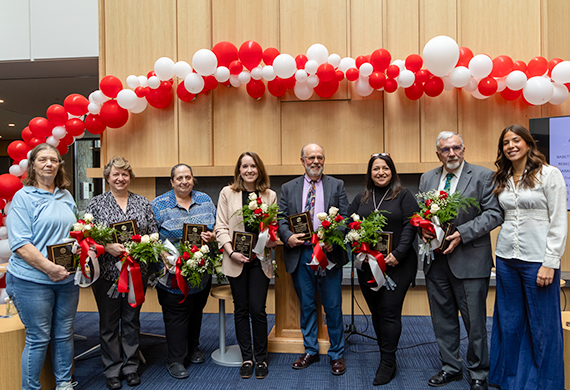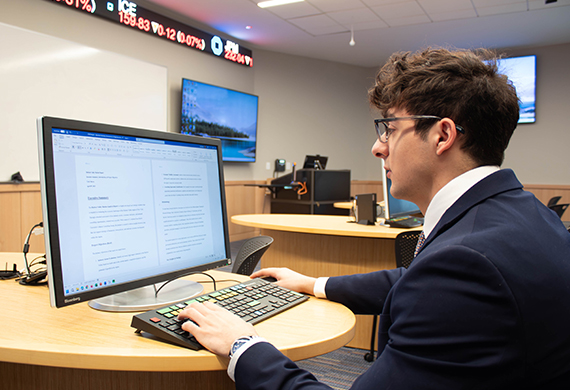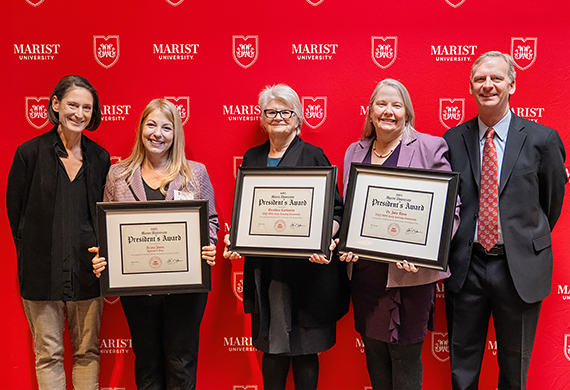Marist College Computer Society and IBM Host Hackathon
May 9, 2018 - The Marist College Computer Society (MCCS) spent the weekend of April 13-15 hosting its hackathon thanks to the first-time sponsorship and collaboration of the IBM Corporation. For those who might not be familiar with the term, a hackathon is a competitive event, typically lasting several days, in which a large number of people meet to engage in collaborative computer programming. The theme for Marist’s hackathon this year was “Define a Service Using the IBM Watson APIs.”
The students starting preparing for the hackathon on April 11, when Setareh Mehrabanzad, Executive Architect from the IBM Worldwide Client Center, and Greg Lacey, Program Manager for the Marist/IBM Joint Study Program, stopped by their MCCS club meeting to present an overview of the Watson APIs and other services. (An API is an application program interface, a set of routines, protocols, and tools for building software applications. A software company releases its API o the public so that software developers can design products that are powered by its service.) The IBM representatives’ presentation prepared the students for the weekend and gave them the tools they would need for their hackathon projects.
The actual hackathon began on Friday evening at 5 p.m. with a kickoff meeting and pizza and ran until Sunday morning at 11 a.m. The teams then presented their projects to an expert panel of judges, who evaluated them based on their technical functionality, usability/visualization, and creativity/innovation. The judges included Professional Lecturer of Computer Science Chris Algozzine; Professional Lecturer and Chair, Department of Computing Technology Matthew Johnson; MCCS president Evan McElheny ’19; and IBM’s Setareh Mehrabanzad.
Prizes were awarded to the top three winning teams. First place went to the project designed by William Kluge ’21 of North Lake Elmo, Minnesota; Maria Molloy ’21 of New York City; Damion Neth ’21 of Manchester, New Hampshire; and Daniel Simpson ’21 of Medley, Florida. The team’s project, entitled GitEfficient, used the Watson Tone Analyzer to analyze GIT messages and provide the user with the tone and time of day of their commit messages. The user would then learn at what time of day they were most efficient based on the tone of the messages written with each commit.
Second place went to the team of Thomas Magnusson ’20 of Perkasie, Pennsylvania; Daniel Mopsick ’20 of Manasquan, New Jersey; and Frank Siderio ’18 of Media, Pennsylvania. Their project, DenScout, was designed to help students manage their housing groups and preferences using the Watson Natural Language Classifier. The service provides an easy way to select housing with a group of students based on their preferences.



